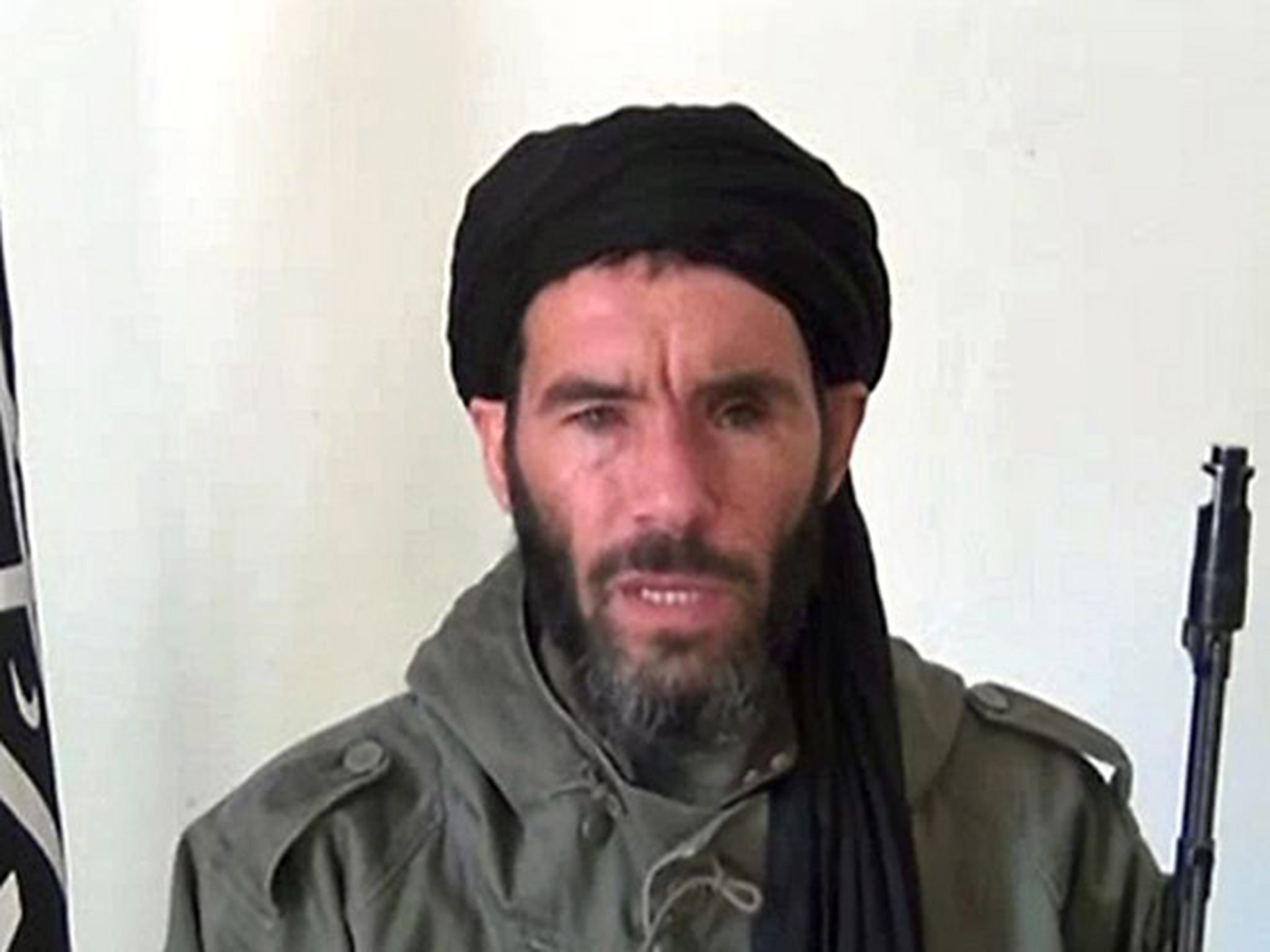Mokhtar Belmokhtar: Veteran jihadist whose Al Murabitoon group claimed responsibility for the Mali hotel attack
The 43-year-old has been nicknamed 'the uncatchable one' after being reported dead several times in recent years

Your support helps us to tell the story
From reproductive rights to climate change to Big Tech, The Independent is on the ground when the story is developing. Whether it's investigating the financials of Elon Musk's pro-Trump PAC or producing our latest documentary, 'The A Word', which shines a light on the American women fighting for reproductive rights, we know how important it is to parse out the facts from the messaging.
At such a critical moment in US history, we need reporters on the ground. Your donation allows us to keep sending journalists to speak to both sides of the story.
The Independent is trusted by Americans across the entire political spectrum. And unlike many other quality news outlets, we choose not to lock Americans out of our reporting and analysis with paywalls. We believe quality journalism should be available to everyone, paid for by those who can afford it.
Your support makes all the difference.The man thought to have been behind the assault on a luxury Bamako hotel is a veteran Saharan jihadist known, among other sobriquets, as “the uncatchable one”.
Mokhtar Belmokhtar, 43, has been reported dead several times in recent years, yet attempts on his life appear to have been unsuccessful.
Earlier this year, Belmokhtar was named the leader of Al Murabitoon, an al-Qaeda affiliate operating in West Africa, which claimed responsibility for the attack, saying in a statement to Al Jazeera that it had carried out the operation in collaboration with Al-Qaeda in the Islamic Maghreb (AQIM), its north African “branch”.
Belmokhtar, who fought with Osama bin Laden in Afghanistan in the 1990s, has sworn loyalty to the current chief of al-Qaeda, Ayman al Zawahiri, and has criticised Isis. In January 2013, he instigated a deadly assault on an Algerian gas facility, and several months later a double suicide bomb attack on a military barracks and a nearby uranium mine in Niger.
“The attacks in Bamako would be entirely within Belmokhtar’s style,” said Paul Melly, an associate fellow at Chatham House’s Africa programme. “While there have been several small scale attacks in Mali so far this year, Belmokhtar has tended to favour larger scale attacks.”
Born in northern Algeria in 1972, Belmokhtar first took up arms as a teenager, fighting with the mujahedin against the pro-Soviet government in Afghanistan. It was there that he is believed to have lost his left eye while mishandling explosives. He now wears a distinctive false eye in its place, earning him another of his nicknames: “One Eye”.
He returned home to spend the 1990s fighting and smuggling on behalf of extremist Islamist groups to overthrow the Algerian government. The country’s courts have twice sentenced him to death in absentia for terrorist activities. Formerly a commander within AQIM, in 2012 Belmokhtar left the group after an argument with the leadership.
He formed his own faction, al-Mua’qi’oon Biddam (“Those who Sign with Blood”), which in January 2013 took more than 800 hostages in an attack on Algeria’s Tigantourine gas facility – a response to French military operations against Islamic militants in Mali. By the time Algerian forces regained control of the facility, 39 hostages and 29 of Belmokhtar’s fighters were dead.
Last year, Belmokhtar, who named one of his sons Osama after the al-Qaeda founder, reaffirmed his loyalty to Zawahiri in a statement posted on Twitter. He also criticised Isis for its violence against Muslims in Syria, urging its fighters to “return to the truth and to reconcile before the war comes for the fruit of your jihad and the best among your men”.
In August, he was named the leader of al-Murabitoon, which also calls itself “Al Qaeda in West Africa”, suggesting not only that it remains allied to AQIM, but also offering a contrast with its rival Islamist group, Boko Haram, which recently rebranded as the Islamic State in West Africa. During the attack in Bamako, some 80 hostages were reportedly freed after correctly reciting Koranic verses, a method typically used by al-Qaeda to avoid killing Muslims.
In its August announcement, al-Murabitoon insisted it was “innocent” of “what [Isis] and its leaders have done… in terms of fragmenting the ranks of the mujahedin and shedding the inviolable blood of Muslims.” Citing Bin Laden’s example, Belmokhtar’s group said it was committed to “expelling the Crusader enemy that occupies our land”.
Join our commenting forum
Join thought-provoking conversations, follow other Independent readers and see their replies
Comments